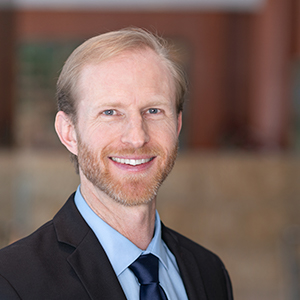
Through innovative curricula and interventions, dedicated individuals are making brain development discoveries easier for both parents and policymakers to apply. Some of these individuals work with community-based organizations that aim to build on parents’ strengths through mentoring and other supports. Others are researchers, like Judy Cameron and Scott McConnell, who bridge the information gap that can exist between academia and the public.
Judy Cameron’s work in neuroscience labs investigates a number of questions, including how exposure to excessive stress early in life can affect gene expression. This research adds to the understanding of how early experiences impact child development.
But contributing to scientific knowledge about child development is not enough. Cameron is also passionate about finding ways to bring knowledge from the lab into legislatures and living rooms.
Over the past two decades, Cameron has presented research on brain development to state lawmakers, explaining that early experiences affect brain development and therefore how people behave. She was inspired to go on the road after finding that many people did not understand how the brain works.
“People thought that you can behave any way you wanted to, not that the structure of the brain controls behavior. Through pictures, I show how experiences change gene expression and brain structure and how this causes changes in behavior,” Cameron said. She also notes that early childhood development programs for children and education for parents can be effective in helping support healthy brain development.
About five years ago, when she took over science outreach at the University of Pittsburgh, Cameron decided the audience needed to expand beyond statehouses. While traveling with the university’s mobile laboratory to schools, she talked with parents about brain development. She realized that while the word was getting out about brain development to legislators, it was not getting to the general public and parents.
Providing tools to parents
With colleagues at the University of Pittsburgh, Cameron developed Working for Kids: Building Skills, a resource hub for anyone involved in presenting key messages about brain development to parents. Tools include short stories that illustrate brain development concepts and hands-on activities that illustrate how connections are formed in the brain. Working for Kids starts with what parents are already doing with their children, and then layers on additional skills they can use to promote brain development.
—Judy Cameron, University of Pittsburgh
One tool features a large poster of the brain and a set of smaller pictures showing children of different ages, each depicting a developmental stage in childhood. Cameron places the pictures on different parts of the brain image and, using yarn to make connections between them, discusses what experiences help make certain types of brain connections. “We let parents think about how they are going to provide kids experiences that build connections,” Cameron said.
For example, to read effectively, the brain needs to make connections between parts of the brain that regulate vision and communication. Parents can nurture such connections by reading to children and encouraging children to read themselves.
“You want to figure out for every single child what you are going to do that will encourage them to use a pathway again and again, because the more it’s used, the more permanent it will be,” Cameron said.
Other organizations are also developing tools for parents. For example, LENA Start is an early language development program that provides accessible and actionable information to parents. Families participate in a 13-week program where young children wear an unobtrusive device that records the number of words spoken between caregiver and child, the number of turns in conversations, and other aspects of a child’s language environment. Data are regularly shared with parents to help them create experiences that support language development.
According to Scott McConnell, director of community engagement at the University of Minnesota Center for Early Education and Development, “Parents love the data. They like how we can bring complex ideas about child development into their lives.” During the last couple of years, McConnell has worked with school districts in the Minneapolis-St. Paul area to implement the LENA Start program.
Meeting parents where they are
Having meaningful content can help parents foster brain development—provided they have the time and energy to apply the content with their children. Sometimes the logistics of everyday life, such as transportation, housing, employment, and child care, raise barriers to parent engagement. One strategy for lowering the barriers is to reach parents where they live. That’s the approach of the Northside Achievement Zone (NAZ), which focuses on children and parents in a specific neighborhood of North Minneapolis with the goal of all low-income children of color graduating from high school college- and career-ready.
NAZ reaches out through home visits to help families set goals and connect with resources to help achieve them. NAZ also provides parent education programs, such as College Bound Babies, a series of classes for parents of children up to three years old. When families need to travel to a class, NAZ helps troubleshoot transportation challenges, such as paying for cab fare, noted Andre Dukes, NAZ’s director of organizational learning and practice.

Also in Minneapolis, Way to Grow uses home visits, a center-based program, and educational resources to make sure early-elementary-school-age children are on a healthy developmental track by third grade. The organization provides advice on a wide range of topics for parents, from early attachment with their babies to approaching elementary school teacher conferences.
Mina Thao became a family educator at Way to Grow after receiving services from the organization for four years. Thao’s parent-educator had helped her enroll her son in preschool after a developmental assessment showed he was behind. “By the end of his preschool year, he was doing well academically,” Thao said.
Another aspect of meeting parents where they are is connecting with the things that are important to them, such as cultural identity. Thao noted that having a parent-educator from her culture helped build trust: “It was helpful to have a home visitor who looks like me, which made me comfortable to open up.” Trust can also be influenced by the setting. For example, parents who had difficult experiences in school may be reluctant to go to a program offered in one.
Dukes noted that “there are a lot of things we can do to make sure we are ready to receive our families and offer family-ready environments.”
—Andre Dukes, Northside Achievement Zone
Empowering parents
A strategy that empowers parents can help build trust and achieve lasting benefits. “The innovation in parent engagement is moving toward a direction of parent leadership,” said Dukes. “We find it is important for practitioners to be listeners and learners in the beginning and then just walk alongside parents to support them as they do things for themselves.”
Much of the strategy is recognizing where families are providing support for their children and building on those strengths. “I go to homes and empower parents. I tell them, ‘I am not your child’s teacher, you are your child’s teacher, and I am here to help,’” Thao said about her approach to conducting home visits through Way to Grow.
Cameron noted that a number of parents didn’t grow up with skillful parenting role models and can benefit from accessible examples of effective parenting. Working for Kids developed a series of short video clips that demonstrate how to engage children in particular activities.
“Almost always what parents say is, ‘oh, no big deal, I can do that,’ and that’s exactly what you want, you want to empower them to be able to interact with their child and realize they are very capable,” Cameron said.
Finally, much can improve about how early health and education programs and systems reach and interact with parents. Programs often work in silos related to the funding they receive, which can make finding and coordinating resources challenging for parents.
“We have in front of us a real opportunity and an obligation to address things as simple as data systems and as complicated as coordinated care systems, to better knit together a service delivery system that makes a bigger difference for families,” McConnell said.
Judy Cameron presented on “Community Engagement to Support Children’s Brain Development” on day one of the Minneapolis Fed’s Innovation in Early Childhood Development and K-12 Education Conference, which took place on October 23–24, 2018. Andre Dukes, Judy Cameron, Scott McConnell, and Mina Thao participated in a panel discussion on “Engaging Parents.” Videos and slides are available on the conference web page.
Return to “Exploring innovation in early childhood development” article index







